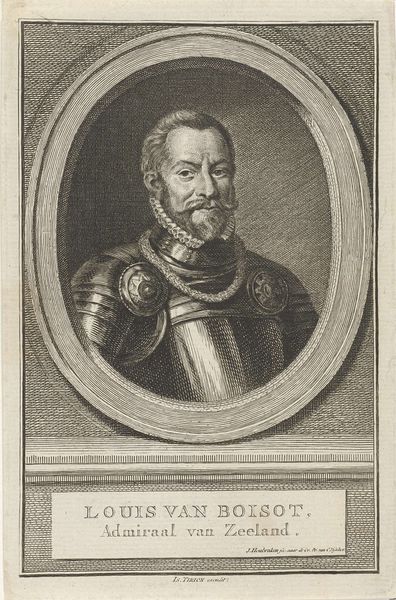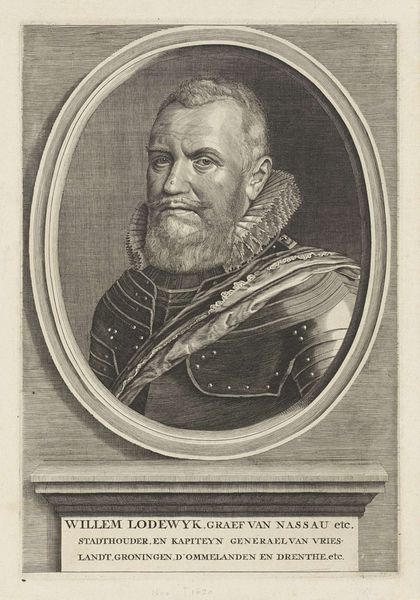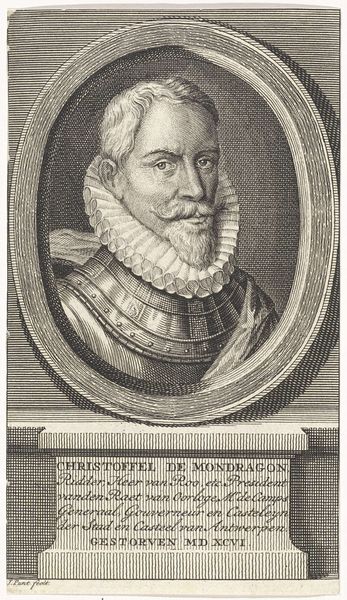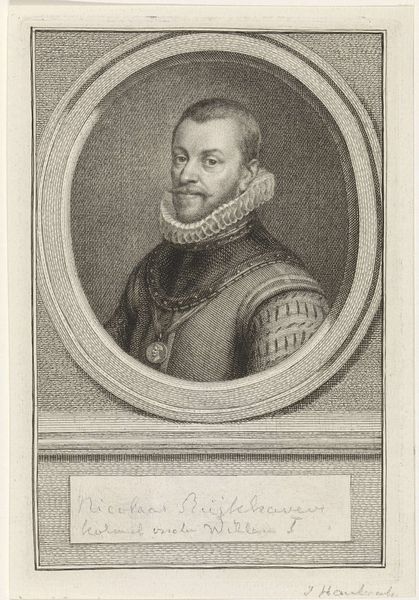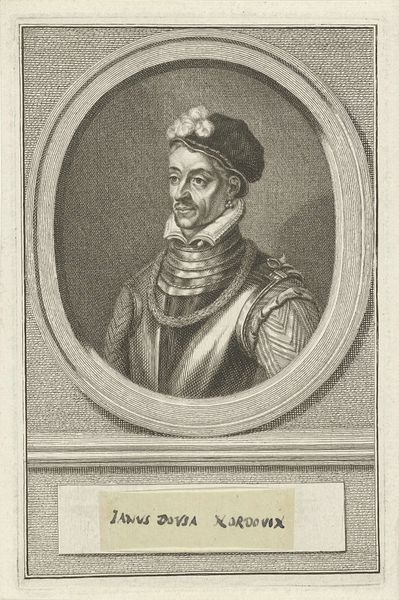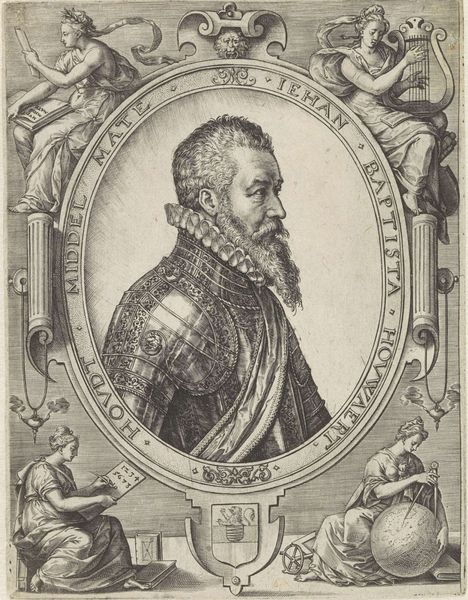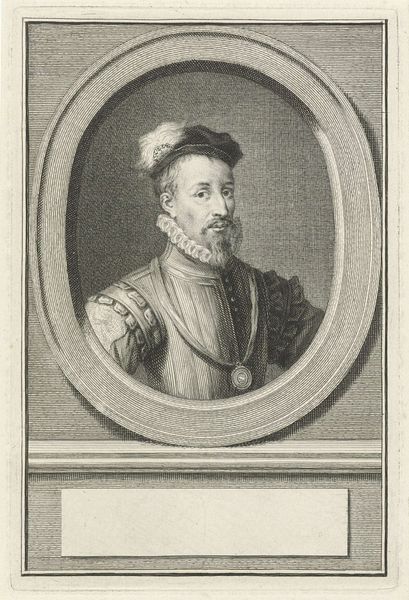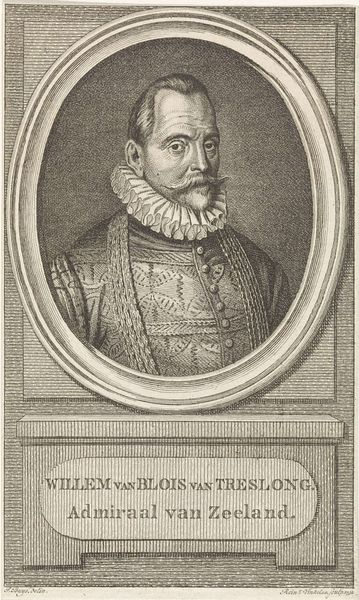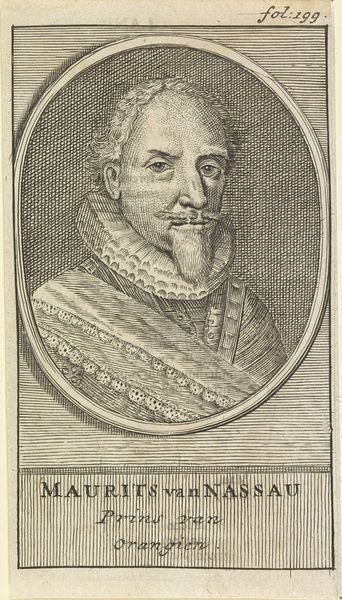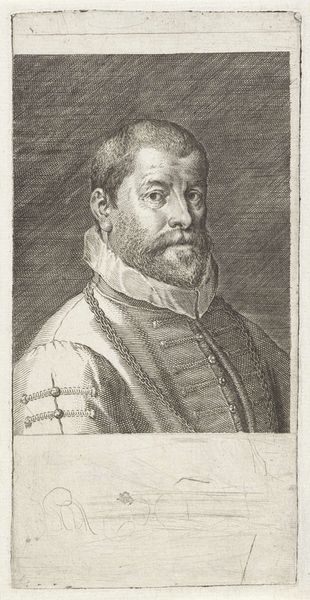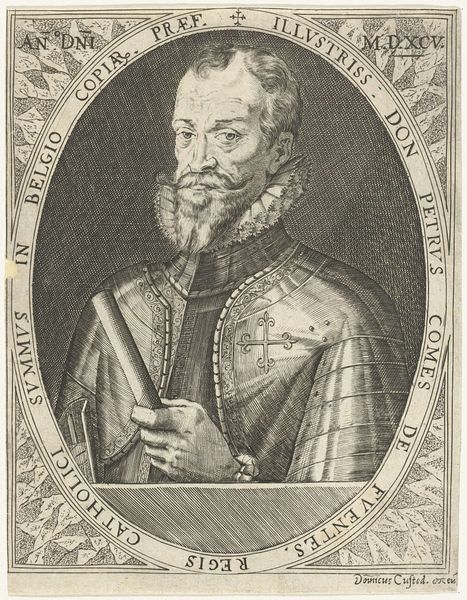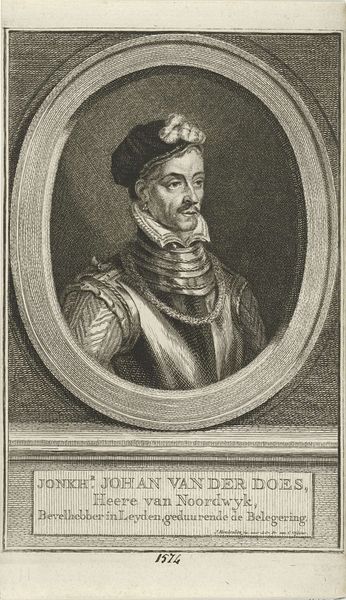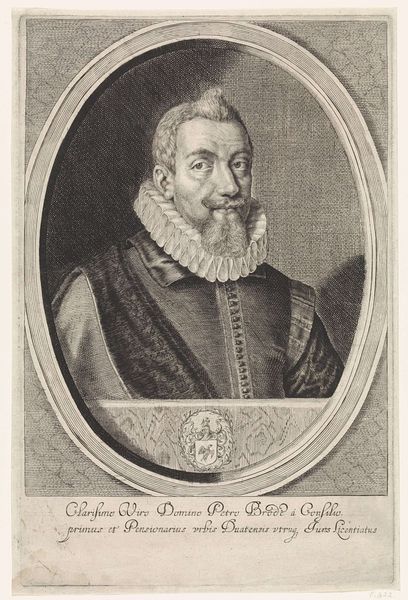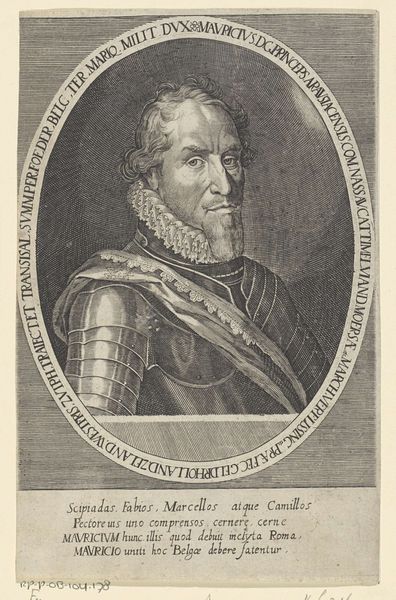
engraving
#
portrait
#
baroque
#
old engraving style
#
form
#
portrait reference
#
line
#
engraving
Dimensions: height 182 mm, width 120 mm
Copyright: Rijks Museum: Open Domain
Editor: Here we have Jacob Houbraken's "Portret van Philips van Montmorency," an engraving from sometime between 1708 and 1780. There’s something austere about the figure, enclosed in that oval frame... almost trapped. What do you see in this piece? Curator: Indeed, that sense of confinement is powerful. While technically a portrait, this work for me becomes a poignant commentary on power, identity, and historical memory. Consider Philips van Montmorency's historical context – a nobleman executed for treason. Does the artist's choice to depict him formally, almost heroically, complicate our understanding of his actions and their consequences? Editor: That's fascinating. It seems to humanize someone who was, I guess, considered a traitor. Is Houbraken making a statement about justice here? Curator: Perhaps. By choosing to portray Montmorency with such dignity, despite his historical fate, the artist seems to provoke a discussion about the complexities of political resistance, loyalty, and the narratives that history chooses to immortalize – or erase. Consider the formal aspects, the Baroque style with its detailed rendering, juxtaposed with Montmorency's tragic end. Does the style serve to glorify him or ironically comment on the ephemerality of earthly power? Editor: I hadn’t thought about the Baroque style as potentially ironic. I guess I was so focused on the image of the man. Curator: Precisely. It is this interplay between the artistic choices and the subject’s life that sparks critical reflection on how we construct our understanding of figures deemed “historical villains” or “heroes.” Editor: This engraving is much more than just a portrait; it is like a battleground of conflicting interpretations of this man. I’ll definitely remember that when I look at art from now on. Curator: And hopefully, we can begin to see that art never exists in a vacuum but instead acts as a cultural mirror that reflects the tensions, anxieties, and power struggles of its time and beyond.
Comments
No comments
Be the first to comment and join the conversation on the ultimate creative platform.
